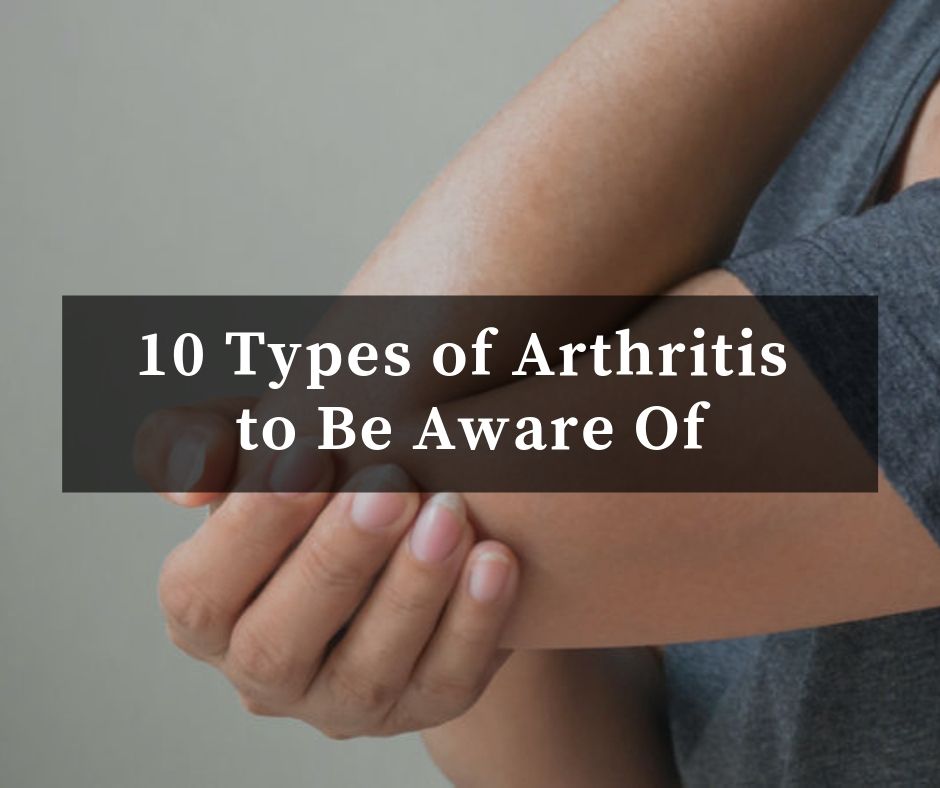
People tend to think of arthritis as a single condition, but it’s actually more than 100 different musculoskeletal conditions—all of which cause pain and inflammation in the joints, according to the Arthritis Foundation. Here are the most common types, and what you need to know.
Carpal tunnel syndrome
Carpal tunnel syndrome mainly affects the wrists and hands. When you’re doing the same fine motor skill over and over—typing, say, or repetitive carpentry work—you can compress the median nerve that runs from your forearm to your palm.
Your symptoms might be pain in the wrist or hand and/or tingling and numbness in the fingers, says Henry Goitz, MD, academic chief of sports medicine in the Department of Orthopedic Surgery at Detroit Medical Center Detroit Receiving Hospital. A doctor might recommend splinting your wrist to help immobilize it; some patients may need surgery to reduce pressure on the median nerve.
Fibromyalgia
People with this condition will suffer widespread chronic pain, fatigue, memory problems, and mood changes. The persistent pain and fatigue can lead to depression and anxiety for some patients, says Dr. Goitz. According to the Mayo Clinic, researchers don’t know exactly what causes the condition, but researchers suspect that many different medical issues—alone or together—may contribute to the development of fibromyalgia.
Research has also linked the disease to stress, and it appears to run in families. The mainstay of treatment is sleep and physical activity, and some people may find medications help them manage the condition.
Lupus
This chronic, autoimmune disease can target multiple organs and can lead to joint pain and swelling. Lupus sufferers can also be sensitive to sunlight, report fatigue, and get a butterfly-shaped rash on the bridge of the nose, says Dr. Goitz.
According to the Mayo Clinic, it’s unclear what causes lupus,but there may be a genetic link. Other causes include certain medications and infections that can trigger the disease. Some patients are able to manage symptoms with anti-inflammatory drugs and steroids; in more advanced cases, doctors may prescribe immunosuppressive agents to prevent organ damage.
Osteoarthritis
This is the classic arthritis most people think of: Osteoarthritis (OA) is a degenerative joint condition that can be caused by trauma or the usual aging process. The most common symptoms of osteoarthritis are joint stiffness (particularly first thing in the morning or after resting), pain, and joint swelling after exercise. According to Dr. Goitz, your risk factors include carrying extra pounds, injuries to the tissues or bones in the joint, and overuse.
Even though exercise can be painful and lead to swelling, it can be key to treating OA, says Dr. Goitz: Try to maintain the health and the strength of the muscles around your joints. The knees and hips are common OA targets; keeping your leg and core muscles strong can take pressure off these joints. Physical therapy can be a big help and allow patients to put off the use of prescription pills, creams, and steroid injections.
Osteoporosis
In a person with osteoporosis, their bones break down faster than the body can rebuild them. The skeleton weakens and the risk of fractures escalates. Because osteoporosis develops over years, you may not be aware you have it until you break a bone, notice a loss in height, or you develop a hunch in your back. Age, gender, family history, lifestyle habits and certain medical conditions, procedures, and medications can increase the risk for osteoporosis.
Paget’s disease
About one million people in the United States have Paget’s disease, a relatively slow-progressing condition in which the bones fail to grow properly—a sufferer’s bones become large, weak, and misshapen. The disease tends to primarily affect the spine, skull, pelvis, and extremities, says Dr. Goitz. Paget’s disease rarely spreads from one site to another. For example, if the disease targets the pelvis, the spine or skull will escape harm.
Although Paget’s generally runs its course and disappears, any bone damage will be irreversible; the condition can cause pain, stiffness, fractures, and other problems if not treated properly. Bisphosphonates, which help slow down the process of bone turnover, are the most routine drug treatment for Paget’s.
Psoriatic arthritis
According to the National Psoriasis Foundation, roughly 30 percent of those with psoriasis (a skin condition characterized by itchy, scaly rashes and crumbling nails) also develop a form of inflammatory arthritis called psoriatic arthritis—inflammation of the skin and joints. While the cause of psoriatic arthritis is unknown, some people may be predisposed to it, and family history may be a factor. Non-steroidal anti-inflammatory medications and exercise can provide temporary relief, says Dr. Goitz.
Rheumatoid arthritis
In autoimmune diseases like rheumatoid arthritis (RA), your body’s defenses go haywire. Your immune system mistakenly attacks healthy tissues as if they were a dangerous invader. In the case of RA, immune cells target the lining of your joints called the synovial membrane. As the membrane swells with inflammation, the damage can spread to the cartilage and bones of your joints; they’ll swell and feel painful and stiff, explains Dr. Goitz.
Typically, both sides of the body—both knee joints, for example—will suffer simultaneously, he says. Severe cases can result in joint deformity, and in extreme cases, the condition can lead to total joint replacement.
Tendinitis
Your tendons are thick fibrous cords that anchor your muscles to your skeleton. Running, walking, or playing sports like tennis and golf can lead to inflammation of your tendons—tendinitis—explains Dr. Goitz. Your symptoms can be pain, stiffness, and soreness. You can try applying topical anti-inflammatory or lidocaine (numbing) creams, icing the tender area, and stretching and strengthening the surrounding muscles, says Dr. Goitz. Physical therapy can help people recover; in rare cases, a patient might require surgery.
Vasculitis
With this autoimmune disease, your immunity mistakenly attacks healthy blood vessels. As inflammation increases, your blood vessels will narrow and you’ll end up feeling fatigued and weak. As vasculitis progresses, people can lose weight, suffer paralysis, and end up with arthritis in one or more joints. Treating this condition requires tamping down inflammation in the body, says Dr. Goitz. Doctors may prescribe disease-modifying antirheumatic drugs for more serious types of vasculitis.

























